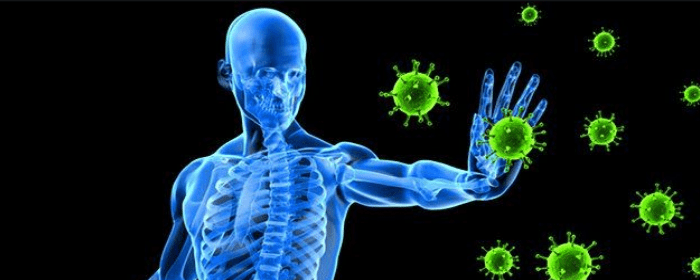
by admin | Jul 20, 2020 | Autoimmune, Health Awareness
The benefits of regular physical activity simply can’t be overstated. From controlling weight to boosting energy, improving mood, and reducing the risk of chronic illness, it’s among the best things you can do for your health, especially when coupled with sound nutrition. Yet, what happens if you already have a preexisting condition that makes exercise difficult?
For people with autoimmune disorders such as lupus, certain types of arthritis, and fibromyalgia, among many others, periods of flare-ups can make exercise challenging. When low energy levels, widespread pain, and other challenging symptoms manifest, it’s understandable that the last thing you’d want to do is exercise.
Nonetheless, while more movement might seem counterintuitive to controlling pain, it turns out physical activity could actually help control your symptoms. In fact, people with certain autoimmune disorders who exercise regularly may experience a milder disease course, improved mobility, and better cardiovascular wellness. Plus, exercise releases endorphins, the body’s natural painkillers, and can reduce inflammation and anxiety.
Of course, to get moving while you’re in pain is a delicate balancing act: too much of a good thing can certainly backfire. For this reason, low-impact exercise is best for people with autoimmune disorders, especially during flare-ups. Here are some recommendations for working out in a way that works for you and your autoimmune condition:
Be mindful of your personal needs.
The symptoms of autoimmune conditions can vary significantly from one person to the next. Moreover, you’re likely to experience good days and bad days. Before you plan a workout for the day, check-in with yourself, and make an honest assessment of how you’re feeling. If you’re too drained or in pain to work out, don’t stress over a missed workout.
Recruit the experts.
While you can certainly establish a workout regimen independently, it doesn’t hurt to get input from your medical specialists, and perhaps even some physical fitness pros. Whether you work with physical therapists who specialize in joint conditions or a trainer at your local gym who can help you perfect your form, getting expert advice may help you avoid injury and find an approach that best suits your needs.
Go for low-impact exercises.
Explosive, plyometric moves like box jumps and burpees aren’t for everyone. If just the thought of these moves gets your joints aching, don’t fret. There are still plenty of low-impact moves that can elevate your heart rate and provide a quality workout. Cycling, swimming, rowing, yoga, treadmill walking, and Pilates are a few joint-friendly exercises to consider.
Track your workouts.
It’s easy to be consumed by numbers such as calories burned and minutes worked out. Instead of focusing on these metrics, look instead at how you feel before, during, and after a workout. Check for patterns that may help you better understand which types of exercise are best suited for your body and when. For instance, if you feel particularly sore after one type of workout, it may be best to scale back next time or skip that activity altogether. If, on the other hand, you feel loosened up and relaxed afterward, consider adding that type of exercise to your regular regimen.
Fuel your body appropriately.
For people with autoimmune conditions, good nutrition isn’t just about staying healthy. It’s also an important component of controlling inflammation, a common concern in autoimmune diseases. An anti-inflammatory diet in which you avoid red meat and heavily processed foods while prioritizing lean protein, vegetables, and omega-3 fatty acids could help you feel even better after your workouts.

by Stemedix | Jul 6, 2020 | Stem Cell Therapy, Autoimmune, Lupus
Lupus is a long-term illness which can lead to inflammation and pain in any part of the body. As an autoimmune condition, lupus is characterized by an immune response in which the body mistakenly attacks healthy tissue. Oftentimes, the condition affects the skin and joints. In serious cases, it can also affect the internal organs, such as the kidneys and heart. Common symptoms include rash, fatigue, and swollen lymph nodes.
There is currently no cure for lupus, though medications such as anti-inflammatory drugs and immune-suppressants are used to control symptoms. In severe cases, cytotoxic drugs may be prescribed. These medications target and destroy cells that grow at a rapid rate. In the case of autoimmune conditions, the hyperactive immune system produces autoantibodies too rapidly, and the medications may help to control this response.
Unfortunately, drugs such as cytotoxic medicines have a number of unfavorable side effects, including toxic effects on the blood and immune systems. Patients become more vulnerable to infections such as pneumonia, and hair loss is a common side effect.
Frustratingly, lupus can be a painful and debilitating illness, and patients are left with few treatment options. Moreover, not all patients respond to medications as desired.
Stem Cell Therapy for Lupus
Any successful therapy for lupus should help to control the flare of symptoms and balance the body’s immune response. While achieving this harmony has proven difficult with traditional therapies, recent research suggests stem cell treatment could hold the potential in helping to manage the symptoms of this autoimmune condition.
In particular, the intravenous administration of a patient’s own stem cells could help to regulate the body’s immune response, restoring function in the organs affected by the illness while simultaneously minimizing or eliminating the need for certain medications.
Stem cells can give rise to virtually any cell tissue within the body. They also have the ability to repair damaged tissue because they have the ability to multiply. Within recent years, studies involving stem cell therapy have been performed, offering immense promise to patients with autoimmune conditions seeking alternative treatment options. Contact a Care Coordinator today for a free assessment!

by Stemedix | Jun 8, 2020 | Autoimmune, Stem Cell Therapy
The immune system is divided into two major entities, depending on the type of action it exerts; the innate immune system and the specific immune system.
The innate immune system, which you can think of as the first responder to foreign pathogens that try to penetrate the body. This system is also referred to as non-specific immunity because it does not differentiate between different aggressors. The main components of the innate immune system include mechanical barriers (e.g., skin, acidic environment of the stomach, cilia found in the respiratory tract) and immune cells (e.g., macrophages, natural killers, neutrophils, basophils).
The specific immune system, which implements unique immune cells and antibodies to specifically target germs. For instance, when you get infected with the stomach flu, the immune system will produce specific cells and antibodies to the proteins found on the surface of that virus. As a result, it will be ready for the next aggressive episode since it has the necessary information to target the virus.
These two entities work to complement one another to keep us alive, with thousands of foreign pathogens destroyed every day. Now that you’re familiar with the immune system, let’s see how stem cell therapy may help in these cases.
What is an autoimmune disease?
An autoimmune disease is an inflammatory and immune reaction to self-antigens. In other words, the body will attack proteins found on harmless substances, such as blood cells, neurons, and pancreatic cells. Some examples of autoimmune diseases include lupus, multiple sclerosis, and rheumatoid arthritis.
Autoimmune diseases are poorly understood, hence the absence of any curative treatment. Most therapeutic approaches focus on long-term medical management that includes taking chemotherapeutic drugs, corticosteroids, and immunomodulators. Moreover, some severe cases may require surgical interventions.
Fortunately, recent research is showing positive results in patients who underwent stem cell therapy for their autoimmune disease using mesenchymal stem cells.
How does stem cell therapy help with autoimmune disease?
Stem cells have been extensively researched for their beneficial effects on several maladies, including the ones that get triggered by a defective immune system. The way that stem cells give this result is by repairing the damaged tissues and regulating the action of immune cells. Consequently, the cells will be less likely to attack self-antigens anymore, tempering down the symptoms of the condition.
Mesenchymal stem cells are a preferred type of cell that avoid ethical issues with extracting these cells and the efficacy they showed over the past few years. Researchers reported that MSCs focus most of their action on T regulatory cells that control the reaction of the specific immune system to foreign pathogens. If this line of cells is not well-regulated, the immune system will overreact to most antigens, resulting in the classic self-inflicted damage.
There are no cures for Autoimmune conditions, and some do find relief from traditional methods. However, there are risks and side effects to consider. Hopefully, a natural alternative option like stem cell therapy can provide additional options for those seeking treatment for autoimmune conditions. Contact us today for a free consultation!

by admin | Mar 26, 2020 | Autoimmune, Mesenchymal Stem Cells
The human immune system can be one of our biggest assets or
one of our greatest foes. The immune system protects us against foreign
invaders like viruses and bacteria. It is essential for helping us maintain
immunity over a lifetime, whether from immunizations or previous infections. We
could not live without our immune systems.
On the other hand, the human immune system is the cause of
numerous diseases. Autoimmune
diseases like multiple sclerosis, ulcerative colitis, systemic lupus
erythematosus, and Crohn’s disease are caused by an immune system that
mistakenly attacks our own tissue. Organ and bone marrow transplants fail
because the body’s immune system rejects the transplant. When the immune system
is functioning normally, it is life-sustaining; however, when the immune system
falters, it can cause serious disease, suffering, and even death.
Compared to other diseases, the treatments for autoimmune
diseases and other diseases that involve the immune system are limited. Doctors
can prescribe steroids to knock down the immune response. These powerful drugs
can control disease flareups, but they aren’t a cure. Moreover, steroids cause
terrible side effects when taken long-term.
While there have been some recent developments in the treatment of certain autoimmune diseases (e.g. disease-modifying drugs for inflammatory bowel disease), medications are still limited. That is why scientists are actively studying the immune-modulating power of mesenchymal stem cells.
Mesenchymal stem cells exert a number of beneficial effects on the cells of the immune system. Mesenchymal stem cells can suppress T-cells, B-cells, dendritic cells, and natural killer cells (cells that participate in autoimmune diseases). Likewise, mesenchymal stem cells induce and affect the action of regulatory T-cells. This can help fine-tune the immune system, potentially shifting the balance from harmful to helpful immune system function.
Mesenchymal stem cells have been shown to be effective in various Phase I and Phase II clinical trials to treat multiple sclerosis, Crohn’s disease, lupus, ulcerative colitis, and even diabetes. While the clinical trials are often small—15-40 patients—the effects are impressive. Furthermore, treatment with mesenchymal stem cells is consistently safe; in study after study, the risk of serious adverse events is vanishingly small.
As with most fields of medicine, these clinical trials will need to be replicated in larger, Phase III trials. That being said, some large trials have already been conducted with favorable results. Perhaps the best example of a large trial testing the effect of mesenchymal stem cells on immune system function is in the field of transplantation medicine. The prestigious Journal of the American Medical Association (JAMA) published a clinical trial of 159 patients undergoing kidney transplants. Stem cell treatment reduced the incidence of kidney rejection, decreased the risk of opportunistic infection, and was associated with better kidney function 1 year after treatment.
The results from dozens of clinical trials suggest mesenchymal
stem cells are powerful modulators of immune cell function and have the
potential to one day be tools to treat diseases caused by the immune system. We
anxiously await further results from large, Phase III trials.
Reference: Gao, F., et al. (2016). Mesenchymal stem cells and immunomodulation: current status and future prospects. Cell Death & Disease. 2016, Jan; 7(1): e2062.





 St. Petersburg, Florida
St. Petersburg, Florida
